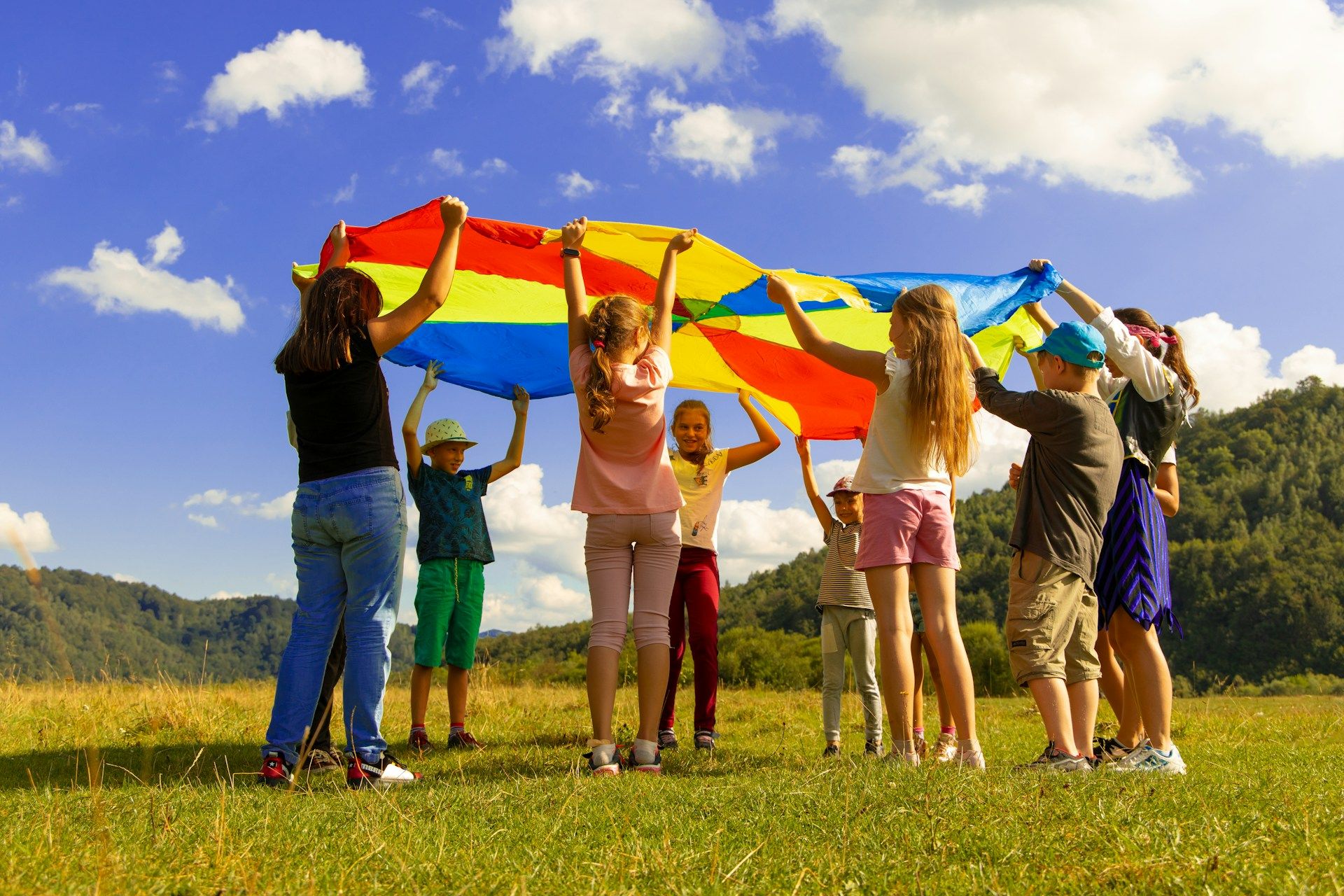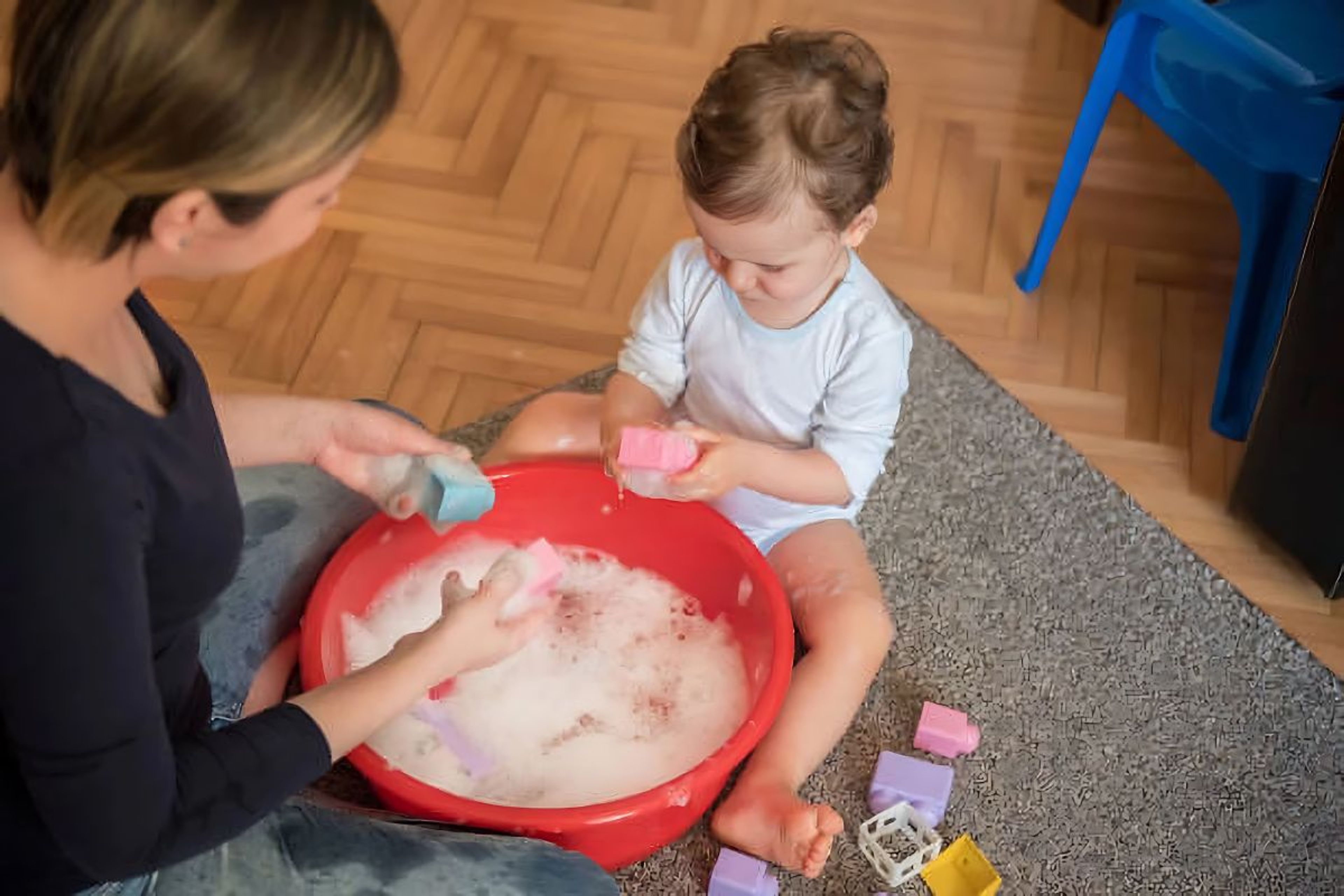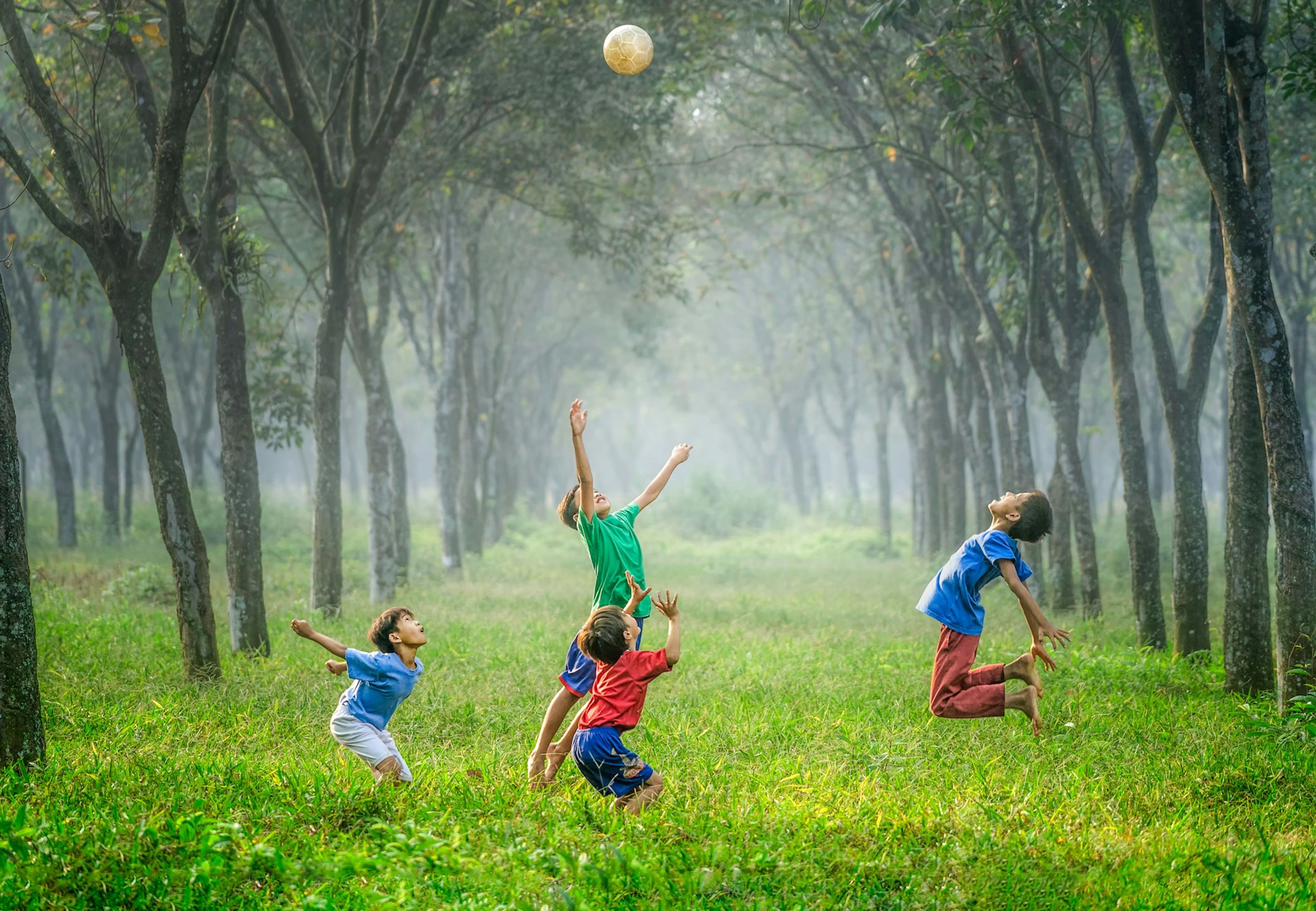Soft Skills, Serious Play: Social-emotional Learning Through Toys

In today's rapidly changing world, the development of soft skills has become increasingly important. These skills, also known as social-emotional learning (SEL) skills, encompass a range of abilities that enable individuals to navigate relationships, communicate effectively, and solve problems. While traditional educational methods primarily focus on academic knowledge, the role of toys in promoting social-emotional learning is often overlooked. By engaging in educational play, children can develop essential soft skills that will benefit them throughout their lives.
The Importance of Soft Skills in Today's World
Soft skills are the intangible qualities that enable individuals to interact effectively with others. In a world that is becoming increasingly interconnected, the ability to communicate, collaborate, and empathize is crucial. Soft skills not only enhance personal relationships but also contribute to success in the workplace. Employers are increasingly recognizing the value of soft skills, as they are essential for effective teamwork, leadership, and problem-solving.
Understanding the Concept of Social-Emotional Learning
Social-emotional learning is a process through which individuals acquire and apply the knowledge, attitudes, and skills necessary to understand and manage emotions, set and achieve positive goals, feel and show empathy for others, establish and maintain positive relationships, and make responsible decisions. It encompasses five core competencies: self-awareness, self-management, social awareness, relationship skills, and responsible decision-making. By incorporating social-emotional learning into playtime, children can develop these competencies in a fun and engaging manner.
The Role of Toys in Promoting Social-Emotional Learning
Toys play a significant role in the development of social-emotional learning skills. They provide children with opportunities to explore, experiment, and learn in a hands-on and interactive way. Educational toys specifically designed to promote social-emotional learning can help children develop a wide range of skills while having fun.
For more insights on how toys support development, check out our article on educational toys that help kids learn.
Benefits of Using Toys for Social-Emotional Learning
-
Enhanced Engagement: Toys create an engaging and interactive learning environment that captures children's attention and motivates them to actively participate in the learning process. Learn more about engaging play in our guide on creative play.
-
Emotional Expression: Toys provide a safe and non-threatening way for children to express and explore their emotions. Through play, children can learn to identify and manage their feelings effectively.
-
For more on emotional development, see our article on pretend play and social skills.
-
Skill Development: Toys can help children develop a variety of soft skills, including empathy, emotional intelligence, communication, collaboration, problem-solving, and self-regulation. Explore our guide on early childhood development for more insights.
Holistic Development: By engaging in play-based learning, children can develop their cognitive, physical, social, and emotional skills simultaneously.
Different Types of Toys for Social-Emotional Learning
There is a wide range of toys available that can promote social-emotional learning in children. Some examples include:
-
Puzzles and Board Games: These toys encourage problem-solving, critical thinking, and collaboration as children work together to solve puzzles or play board games. For specific recommendations, check out our guide on board games for cognitive skills.
-
Dolls and Action Figures: These toys promote empathy and emotional intelligence as children engage in imaginative play and take on different roles and perspectives. Learn more about the benefits of pretend play in our dedicated article.
-
Building Blocks and Construction Sets: These toys foster creativity, communication, and collaboration as children work together to build structures and solve design challenges. For more on motor skills development, see our guide on best toys for motor skills.
-
Art and Craft Supplies: These toys encourage self-expression, creativity, and emotional exploration as children engage in various art and craft activities. Explore our article on creative play for more ideas.
Developing Empathy and Emotional Intelligence through Play
Empathy and emotional intelligence are essential skills that enable individuals to understand and connect with others on a deeper level. Through play, children can develop and enhance these skills in a playful and engaging manner.
Enhancing Empathy Skills through Toy Play
Toys that involve role-playing and storytelling can help children develop empathy by allowing them to step into the shoes of different characters and understand their perspectives and emotions. For example, playing with dolls or action figures can enable children to act out scenarios and explore different emotions and reactions.
Building Emotional Intelligence with Toys
Toys that encourage emotional expression, such as art supplies or emotion cards, can help children develop emotional intelligence. By engaging in activities that involve identifying and expressing emotions, children can learn to recognize and manage their own emotions and understand the emotions of others.
Improving Communication and Collaboration Skills through Toy Play
Effective communication and collaboration are vital skills for success in both personal and professional relationships. Toys can provide children with opportunities to practice and enhance these skills in a fun and interactive way.
Promoting Effective Communication through Toy Play
Toys that involve storytelling, such as puppets or storytelling kits, can help children develop communication skills. By creating and narrating stories, children learn to express their thoughts and ideas effectively, listen actively, and engage in meaningful conversations.
Fostering Collaboration Skills with Toys
Toys that require teamwork and cooperation, such as building blocks or collaborative board games, can foster collaboration skills. By working together towards a common goal, children learn to communicate, negotiate, and compromise, laying the foundation for successful collaboration in the future.
Enhancing Problem-Solving and Critical Thinking Abilities through Toy Play
Problem-solving and critical thinking skills are essential for navigating challenges and finding innovative solutions. Toys can provide children with opportunities to develop and enhance these skills through hands-on and interactive play.
Developing Problem-Solving Skills with Toys
Toys that involve puzzles, mazes, or construction sets can help children develop problem-solving skills. By engaging in activities that require logical thinking, planning, and strategizing, children learn to approach problems from different angles and find creative solutions.
Stimulating Critical Thinking with Toy Play
Toys that encourage open-ended play, such as building blocks or art supplies, stimulate critical thinking. By allowing children to explore and experiment, these toys promote curiosity, creativity, and the ability to think outside the box.
Promoting Self-Regulation and Resilience through Toy Play
Self-regulation and resilience are crucial skills that enable individuals to manage their emotions, cope with challenges, and bounce back from setbacks. Toys can provide children with opportunities to develop and strengthen these skills in a supportive and playful environment.
Building Self-Regulation Skills with Toys
Toys that involve turn-taking or rule-following, such as board games or card games, can help children develop self-regulation skills. By learning to wait for their turn, follow rules, and manage their impulses, children develop self-control and emotional regulation.
Developing Resilience through Play
Toys that involve problem-solving or building, such as building blocks or puzzles, can promote resilience. By engaging in activities that require persistence, patience, and the ability to overcome challenges, children learn to persevere and develop a growth mindset.
Integrating Social-Emotional Learning into Playtime
Incorporating social-emotional learning into everyday play can be a simple and effective way to enhance children's soft skills development. By creating a playful environment that encourages exploration, creativity, and social interaction, parents and educators can maximize the benefits of play for social-emotional learning.
For more tips on creating an engaging play environment, check out our guide on sustainable educational toys.
Incorporating Social-Emotional Learning in Everyday Play
-
Encourage Imaginative Play: Provide children with open-ended toys and materials that allow for imaginative play and storytelling. This can help develop empathy, emotional intelligence, and communication skills. Learn more about the benefits of imaginative play in our article on pretend play and social skills.
-
Facilitate Cooperative Play: Encourage children to engage in cooperative play by providing toys and games that require teamwork and collaboration. This can promote effective communication and collaboration skills. For more on social development, see our guide on early childhood development.
-
Promote Problem-Solving: Provide children with toys and activities that require problem-solving and critical thinking. This can help develop problem-solving skills and stimulate critical thinking abilities. Explore our article on toys that improve focus and concentration for more ideas.
Creating a Playful Environment for Social-Emotional Learning
-
Designate a Play Area: Set aside a specific area in the home or classroom for playtime. This can help create a dedicated space for children to engage in play-based learning.
-
Provide a Variety of Toys: Offer a diverse range of toys that promote social-emotional learning, including those that encourage empathy, communication, collaboration, problem-solving, and self-regulation.
-
Join in the Play: Actively participate in playtime with children. This not only enhances the bonding experience but also provides opportunities for modeling and reinforcing social-emotional skills.
Frequently Asked Questions
What are soft skills?
Soft skills are the intangible qualities that enable individuals to interact effectively with others.
Why are soft skills important in today's world?
Soft skills are important in today's world because they contribute to success in personal relationships and the workplace. They are essential for effective teamwork, leadership, and problem-solving.
What is social-emotional learning?
Social-emotional learning is a process through which individuals acquire and apply the knowledge, attitudes, and skills necessary to understand and manage emotions, establish positive relationships, and make responsible decisions.
How do toys promote social-emotional learning?
Toys promote social-emotional learning by providing hands-on and interactive learning experiences. They enhance engagement, emotional expression, skill development, and holistic development.
What are the benefits of using toys for social-emotional learning?
The benefits of using toys for social-emotional learning include enhanced engagement, emotional expression, skill development, and holistic development.
What are some examples of toys for social-emotional learning?
Some examples of toys for social-emotional learning are puzzles and board games, dolls and action figures, building blocks and construction sets, and art and craft supplies.
How does play help develop empathy and emotional intelligence?
Play helps develop empathy and emotional intelligence by allowing children to step into different roles and perspectives, and by engaging in activities that involve identifying and expressing emotions.
How does play improve communication and collaboration skills?
Play improves communication and collaboration skills by providing opportunities for storytelling, active listening, and engaging in meaningful conversations. It also fosters teamwork and cooperation.
How does play enhance problem-solving and critical thinking abilities?
Play enhances problem-solving and critical thinking abilities by engaging children in activities that require logical thinking, planning, strategizing, and thinking outside the box.
How does play promote self-regulation and resilience?
Play promotes self-regulation and resilience by involving activities that require turn-taking, rule-following, persistence, patience, and the ability to overcome challenges.
How can social-emotional learning be integrated into playtime?
Social-emotional learning can be integrated into playtime by encouraging imaginative play, facilitating cooperative play, and promoting problem-solving.
How can a playful environment be created for social-emotional learning?
A playful environment for social-emotional learning can be created by designating a play area, providing a variety of toys that promote social-emotional learning, and actively participating in playtime with children.
Conclusion
Toys have the power to go beyond mere entertainment and serve as valuable tools for social-emotional learning. By engaging in educational play, children can develop essential soft skills that will benefit them throughout their lives.
From enhancing empathy and emotional intelligence to improving communication and collaboration skills, toys provide a playful and engaging platform for holistic skill development.
By embracing the benefits of play for soft skill development, we can empower children to navigate the complexities of the world with confidence and resilience.




